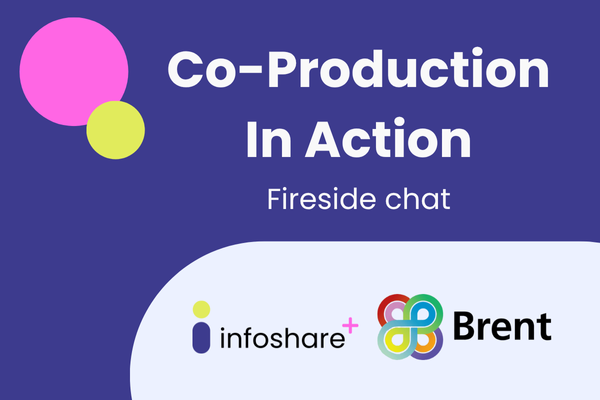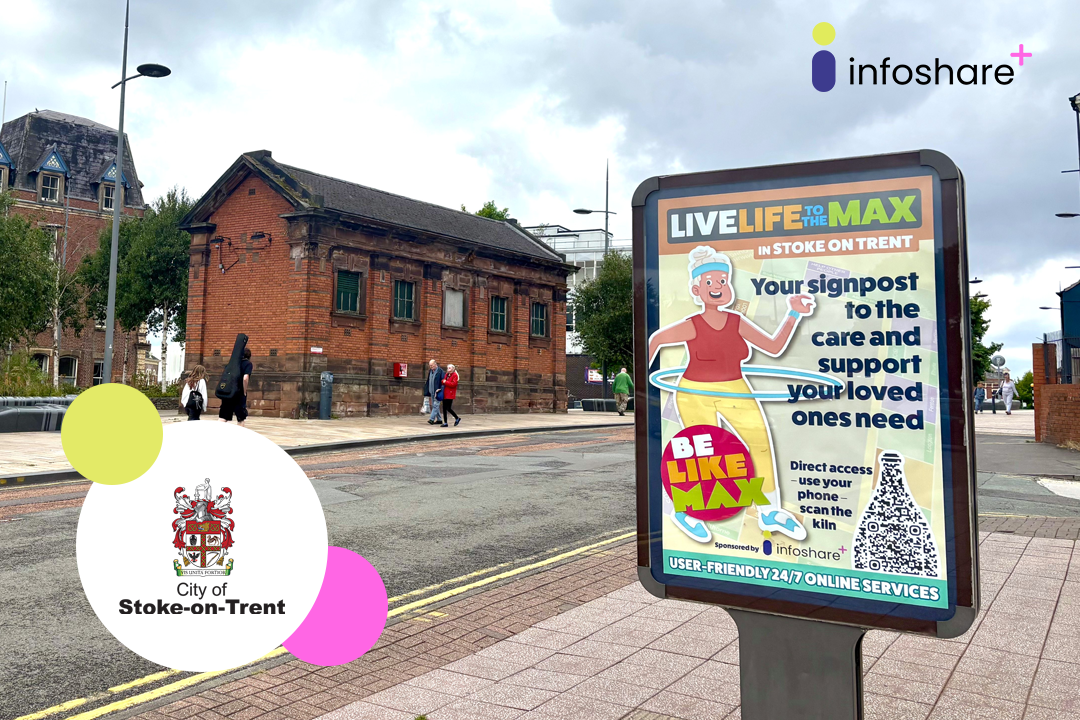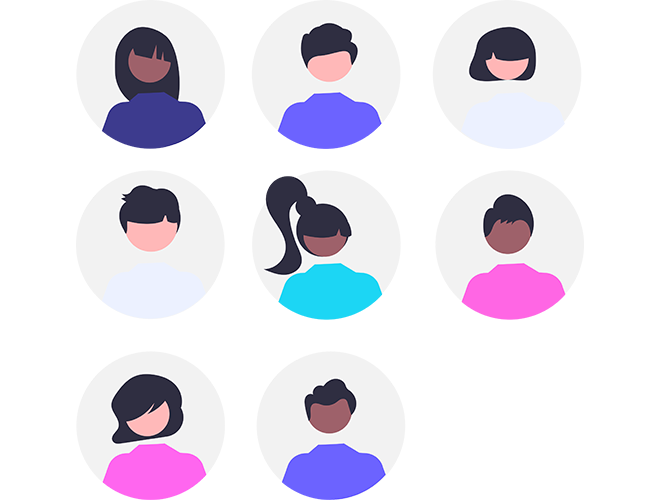Co-production in Action: In conversation with Brent Council

As Co-production Week shines a spotlight councils and communities working together, Brent Council is a superb example of what meaningful co-production looks like in practice – not just in principle.
In a recent fireside chat with Guy Giles, Managing Director of Infoshare+, Duc Tran (Adult Social Care Transformation Programme Manager) and Daniella Harnett (Co-production Coordinator) shared how Brent Council is making co-production central to its adult social care work. Watch the video or check out our summary below.
Co-production as a culture, not a checkbox
For Brent, co-production is not a checkbox exercise. They build co-production into their day-to-day operations – from digital service design to community engagement. At the centre of their approach is the ladder of co-production, which illustrates the levels of community involvement in services, from being informed, to filling out forms, to making decisions collaboratively. This approach guides how projects are planned, with a clear goal to involve residents in as much as possible.
Lived experience as expertise
People with lived experience of using council services have valuable knowledge to share and innovative councils can use this knowledge to shape their services. By encouraging people to share experiences and opinions, councils can see what’s effective, where challenges remain, and how services can improve.
Whether it’s a long-term service user, carer, or someone engaging with services for the first time, every perspective matters. Assigning Co-production Champions can help ensure these voices are heard, so that real-life experiences inform decisions and drive improvements.
This approach in Brent Council has shaped everything from advice services to digital platforms, guided by advisory groups and a growing community of social care professionals that want to be involved.
Building trust and relationships within communities
Successful co-production relies on building trust within communities and creating meaningful, lasting relationships with people from their communities, rather than quick, superficial engagement. Daniella Harnett explains:
“It takes time. But that investment pays off in real relationships, stronger engagement, and better outcomes. Brent’s focus on listening, really listening, has helped people connect with their own role in shaping services.” This approach can be summed up in one phrase: “Nothing about us without us.”
Brent co-production of BetterCare Support
From the beginning, Brent brought in people with lived experience and carers to test ideas, review content, and co-design the user journey. Focus groups and resident advisory groups played a key role in making sure both the BetterCare Support platform and the dedicated carers pathway (BetterCare Support: Carers) were impactful and well-received by their intended audience.
The animations in the platform were especially powerful, helping people identify their needs without needing to relive complex situations. The result is a digital tool that offers the opportunity for self-reflect and support before face-to-face conversations, rather than replace human interaction.
“They helped people recognise their own needs, sometimes even before they’d put them into words.” Daniella Harnett.
Human-led services can be enhanced with digital
The attitude at Brent Council is clear: digital tools should enhance the human experience, not replace it. Digital platforms like BetterCare Support and BetterCare Support: Carers support people where and when they need it – whether that’s late at night, or before they’re ready to speak to someone face to face.
“It’s about giving people access to information when they need it, without waiting for a Civic Centre to open.” Duc Tran.
But what happens after a digital form is submitted matters just as much. The digital platforms help people to self-explore their needs so that, when they’re ready to reach out, they can have better, more intentional conversations with their council. Brent Council is working with carers centres and social prescribing teams to make sure that every digital interaction can lead to a personal one. This combination of digital and human support ensures that no one is left without help, and adult social care teams can have more impact when it comes to face-to-face.
What’s next for Brent Council and co-production?
For Brent Council, co-production is as an ongoing journey, rather than a destination. A major ambition is to bring broader integration of wider neighbourhood services and digital innovation into co-production.
“Working with companies such as Infoshare+ allows us to use digital platforms, like BetterCare Support to leverage the work we are doing in our communities.” Duc Tran.
Services work best when they are shaped by the people who use them. Councils can create more effective services by listening to those with direct, lived experience.
By working together rather than apart, Brent shows how digital co-production can create services that are more relevant, more effective, and more human.
Co-production is the future of local public services
Brent Council are demonstrating how co-production can be a practical approach to build trust, improve services, and create genuine partnership with their community. As Co-production Week continues, their insights and experiences are a best practice example for how councils can bring the idea of co-production to life in practice.
Want to explore how you can build digital tools into successful, co-produced service delivery? Speak to us!



